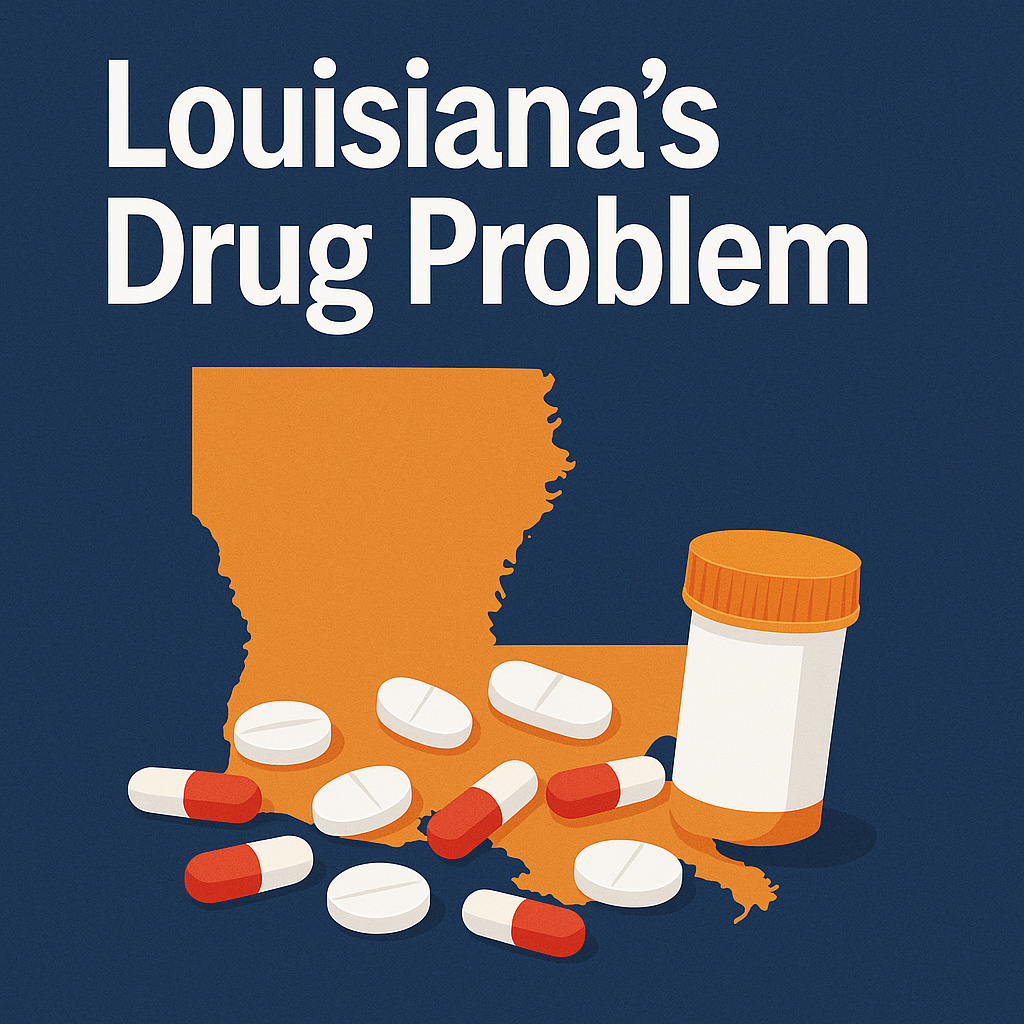As National Prevention Week approaches and annual drug overdose deaths in the U.S. exceed 80,000, the personal-finance website WalletHub has released its 2025 report on the States with the Biggest Drug Problems, highlighting where the crisis is most severe.
Louisiana ranks ninth overall in the nation for drug-related issues, according to the study, which evaluated all 50 states and the District of Columbia using 20 key metrics. These factors included arrest and overdose rates, opioid prescriptions, and the availability of treatment programs.
Louisiana’s Drug Problem by the Numbers:
- 9th – Overall drug problem ranking
- 4th – Opioid pain reliever prescriptions per 100 people
- 5th – Drug overdose deaths per capita
- 10th – Share of adults who could not get treatment for illicit drug use in the past year
- 11th – Drug arrests per capita
- 16th – Substance abuse treatment facilities per 100,000 people
- 28th – Share of both teens and adults who used illicit drugs in the past month
“Drug problems can start from multiple sources, like taking illegal substances with friends or getting hooked on a prescription that was originally given for a legitimate medical issue,” said WalletHub analyst Chip Lupo. “As states fight drug addiction, they need to consider all angles — not just law enforcement — and also provide the resources necessary to help people with addictions get clean.”
New Mexico ranked first in the nation for drug problems, with the highest percentage of teens using illicit drugs and one of the highest overdose death rates per capita.
Expert Insight on the Epidemic
Edward M. Bednarczyk, PharmD, a clinical associate professor at the University at Buffalo, said the most effective way to combat the opioid epidemic includes a triad approach: increased availability of naloxone, use of non-opioid alternatives for pain management, and reduced street drug supply.
On overprescribing, Bednarczyk noted that although unethical practices still exist, the pro-opioid messaging that once shaped prescriber behavior has largely shifted.
Gene M. Heyman, senior lecturer at Boston College, pointed to economic hardship as a powerful predictor of overdose rates. “Our research shows that the most powerful correlate of drug overdose deaths is an economic factor: intergenerational income mobility,” Heyman said. “The psychological distress that follows economic shocks may increase the desire to escape through drug use — and opioids are the drugs that do this best.”
Experts also urged families to take a proactive approach if they suspect a loved one is struggling with substance use. “Keep naloxone on hand and learn how to use it,” Bednarczyk advised. “Denial is a huge problem with all substance use disorders.”
For the full report and expert commentary, visit WalletHub.com.




